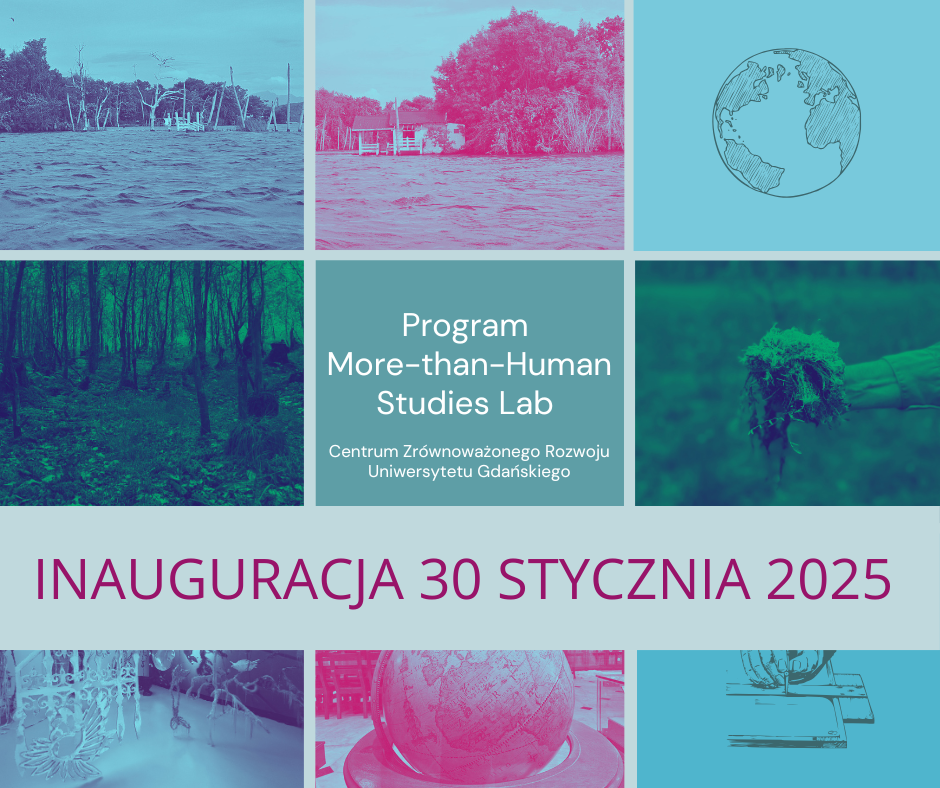We are pleased to invite you to the conference New Solidarities in the More-than-Human World, which will accompany the launch of the More-than-Human Studies Lab programme implemented by the Centre for Sustainable Development at the University of Gdansk. The event will take place on 30 January 2025 from 10:00 to 14:00 in the Library Building of the University of Gdansk (53 Wita Stwosza St., Gdansk, Room 1.22).
The conference will feature a lecture by Prof. Alex Taek-Gwang Lee, Professor of Cultural Studies and founder of the Centre for Technology in Humanities at Kyung Hee University in South Korea, and Prof. Rick Dolphijn, Professor of Media & Cultural Studies and founder of the More-than-Human Studies Lab at Utrecht University. After the speeches, we will invite guests and participants to discuss the future of cultural institutions in the context of interspecies solidarity. We will also hear from Utrecht University students who will present the results of their research project. The meeting will be moderated by Łukasz Krajnik (Centre for Foreign Languages, University of Gdańsk).
We will also present the objectives of the Horizon Europe funded project CONVIVIUM: NEW EUROPEAN BAUHAUS SOLUTIONS IN FOOD, LIVING HERITAGE AND CONVIVIALITY, to be implemented in the years 2024-2027.
During the discussion their opinions will be shared by:
- Martyna Jastrzębska | I Intermedia Studio at the Academy of Fine Arts in Gdansk
- Bartosz Rief | European Solidarity Centre
- Kacper Nosarzewski | 4CF/The Futures Literacy Company
- Irena Chawrilska | More-than-Human Studies Lab UG
The More-than-human Studies Lab is a 21st century transnational open collaboration between academia at large, art institutes, NGO’s and others, that explores in what way our stormy times urge us to live our lives otherwise.
The lab is rooted in multiple intellectual and theoretical developments from the 20th century that include actor-network theory, systems theory, new materialism, post humanism, STS, feminist/queer/postcolonial theory, as well as the revitalization of non-western traditions in knowledge.
Engaging all the faculties of knowledge, it explores a humanism which is not based on parasitic relationships but on symbiosis.
Opening our eyes to the more-than-human world, the joint aim should be engaging actively with the rereading, rethinking, and rewriting, of the sympoietic alliances that we have been blind to for so long.
We hope that the meeting will provide an opportunity to initiate joint activities between institutions working in different scientific and cultural fields for sustainable futures in the turbulent times of the 21st century.
We look forward to your participation.
dr Irena Chawrilska
koordynatorka programu More-than-human Studies Lab
Centrum Zrównoważonego Rozwoju
Uniwersytetu Gdańskiego


